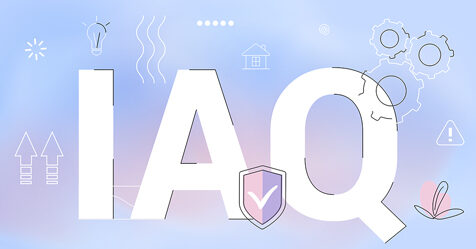You’ve just wrapped up an amazing walk-through with a client, and the client was impressed with how professional and thorough you were. How do you keep the momentum going and continue this strong first impression? The answer is to design an incredible proposal that stands above all other proposals. However, it can sometimes be difficult to blend the right amount of required information with elements that propel yours to the next level. Below are a few tips on how to spice up your proposals with stylish and impactful elements to win more business and make it easier for clients to choose you.
Start With the Basics
More or less, every proposal has fundamental required pieces: a cover page, terms and conditions, charges summary, scope of work, service frequency, and a place to sign on the line. However, even these essential pieces can take a while to organize and type into your proposal document. Using software to create templates that you can reuse as a basis for every new proposal is a massive timesaver (and it ensures you will never leave out anything critical).
Designing and creating a professional-looking proposal can be daunting, so start by searching online for free templates or look for an industry-specific proposal-creating software that can assist you with generating proposals. Once you have found one that you like, create a template, starting with the elements that will rarely (or barely) change from proposal to proposal. For example, your service agreement language will not change too much, so you are usually safe to set that within your template. Spending the time up front to create a template saves an immense amount of time down the road.
Once you have your basic structure in place, you can start focusing on the “juicier” bits of your proposal. Let’s jump into that right now!
Now Spice It Up
The secret spice involves customizing and tailoring your proposals for your clients. Make them feel special by avoiding the generic “boilerplate” feeling. The first page clients see should already set the expectation that this proposal has been specifically created for them. Start with a customized letterhead that includes your company logo alongside the client’s logo (you can pull the logo from the client’s website). Additionally, you can use the client’s brand colors around the header to make your proposal pop even more. This impresses clients and makes them associate your company with theirs. Adding splashes of color and logos makes your proposal stand out among other faceless building service contractors.
After you’ve established your letterhead, use either the second page or the remaining space on your first page to talk about your company’s history and why you are the best option to service their location. Add customer testimonials and a snappy mission statement if you have one. Some companies include a team photo of their crew to put a face to their company. Don’t stop selling your company just because the walk-through is over. Use the proposal as another tool in your kit to close more sales.
At this point, you have the beginning of a great proposal. Based on how you set up your template and on your personal tastes, you can now add in your charges. To put clients at ease, show what you are charging them (the dollar amount) and a breakdown of the work you will perform. Show your scope of work in a table view with the frequency listed next to each task. A table view ensures that everything is organized, clean, and well defined. Make sure the tasks are grouped by each area for increased readability. There are plenty of free resources online you can use for this step. To save time, create a list of tasks you commonly perform in a separate document and copy and paste those into the proposal each time.
At this stage, be sure to reference your walk-through notes. Did the client specifically mention any issues that need resolving? Were there any annoying “hot points” the current service provider was missing? Address these issues in a special category to further convey that you will take care of them. Prove that even before servicing the client’s building, you are fully prepared to provide the best service. Let the client know that you were listening the entire time.
Now let’s really wow the client.
Wow Them With the Walk-Through
Walk-throughs should be as thorough as possible. Your walk-through notes should carry not only into your estimate but also into your proposal. Take pictures of the client’s space with your mobile phone, measure square footage, and count fixtures. You can attach these photos, grouped by area, into your proposal. Do you want your clients to be amazed? Show them that you took the time to organize photos of their own buildings into the proposal and include your measurements along with fixture counts. Hand them portraits of their spaces and they will feel confident that you will provide the highest quality service. This is the ultimate way to shake off that boilerplate feeling and, in most cases, you will be the only company doing this. Go above and beyond. The extra time put into thorough walk-throughs pays off when writing your proposal. If you are unable to take photos of a client’s space, adding a photo of the front of the building is still a small way to stand out, but the ultimate personalization is photos and detailed notes about the areas and rooms within the client’s building. Beat out competition by showing your dedication to excellence.
Wrap It Up
Now let’s wrap it up. Add your service agreement language, terms and conditions, and invoice scheduling, and don’t forget to include a signature area (if you are not doing e-signatures). Creating templates and adding these unique elements to your proposals help you win more clients. Don’t be afraid to add your own flair and personalization to your proposals—use them as a tool to close more deals. Help your brand rise above the rest!




